Stucco silo in Taylorstown, Virginia
Details:
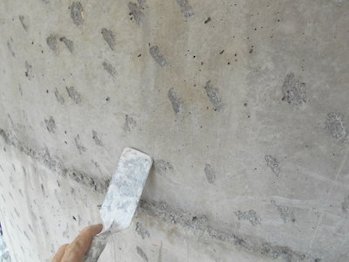
The cast concrete is chipped every 3-4 inches or so, opening the pores of the concrete for a good, permanent bond.
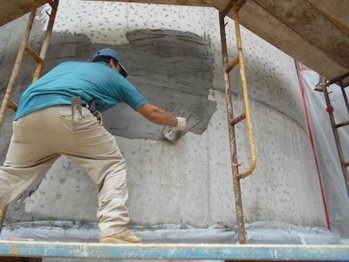
A scratch coat is mixed using plenty of Flex-con in the mortar. Flex-con is an acrylic bonding admixture made for bonding mortar to concrete.
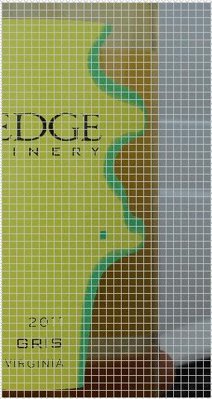
I took a picture of my wine bottle, and created a grid using Paint shop pro, which works fine in Linux.
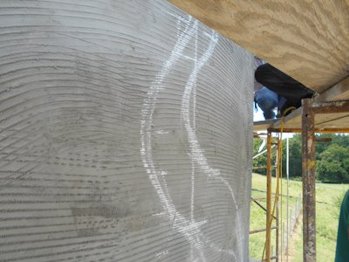
I laid out the creek by making two control lines, one horizontal and one vertical. I drew the creek using a scrap piece of sheetrock for chalk.
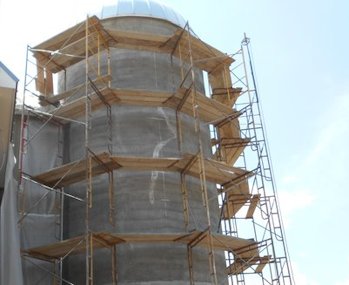
My chalk drawing of Catoctin creek.
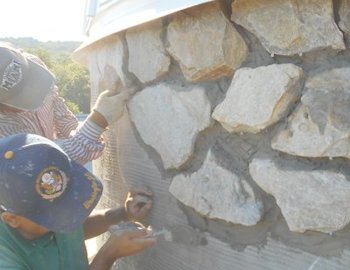
The rocks are stuck on the scratch coat using my same Flex-con mix.
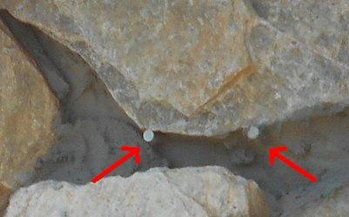
Nails are used to support the rocks until the mortar sets up.
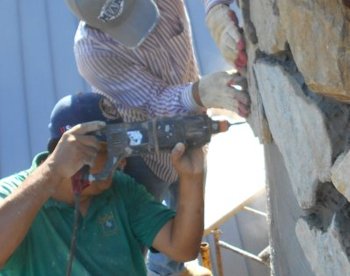
The concrete was way too hard to drive nails in. A hammer drill is used to drill holes for the nails.
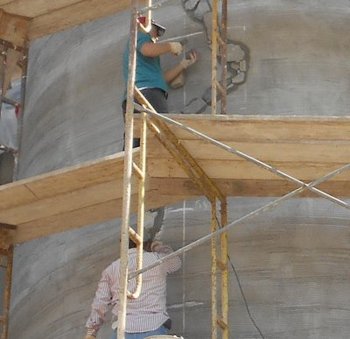
The rocks for the creek are put on. BTW, these are real rocks, not fake rocks.
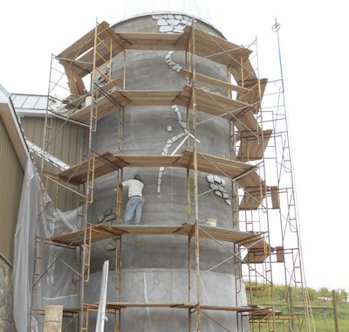
All the stones are covered with tape before putting on the brown coat. It's easier to cover up than to clean mortar off.
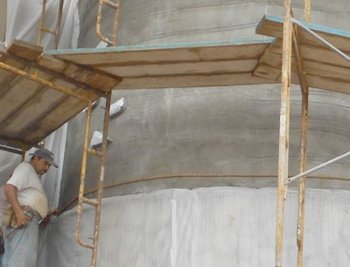
Ropes are set every about 5 feet and used for screeds. You may have seen my
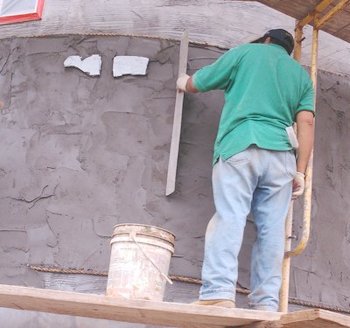
The wall is filled and rodded off between the ropes.
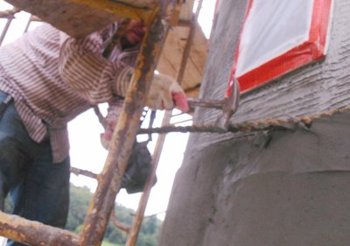
Ropes are pulled off when the mortar starts to set.
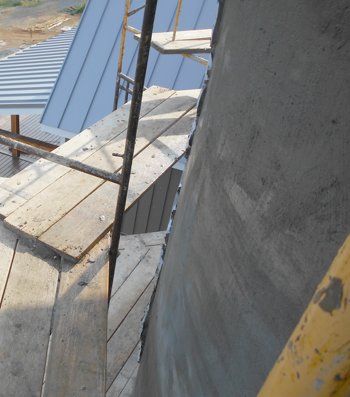
Our wall is straight, and round.
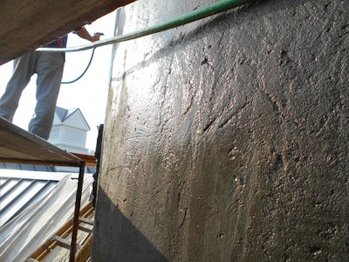
The brown coat is soaked with a hose before putting on the cement finish.
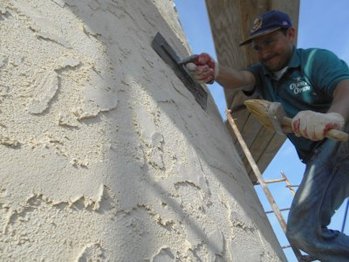
The color is from Expo stucco in San Diego. The finish is put on in two steps. First a coat is put on and rubbed with a float. Then the blobs are put on randomly and knocked down as they set up.
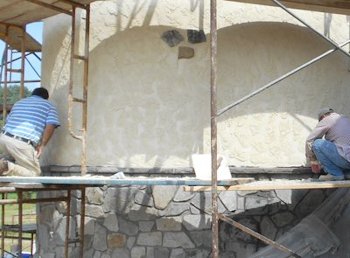
The bottom is filled in with a curved wash. The wash is a curve that deflects water away from the stones. The stone sill is angled down for water run off..
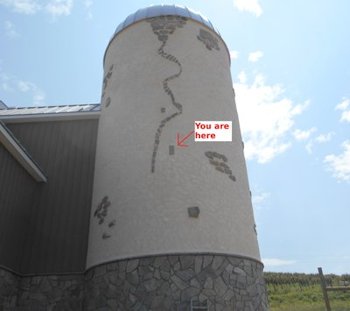
I put on a rock to mark where the winery is, in relation to Catoctin Creek..